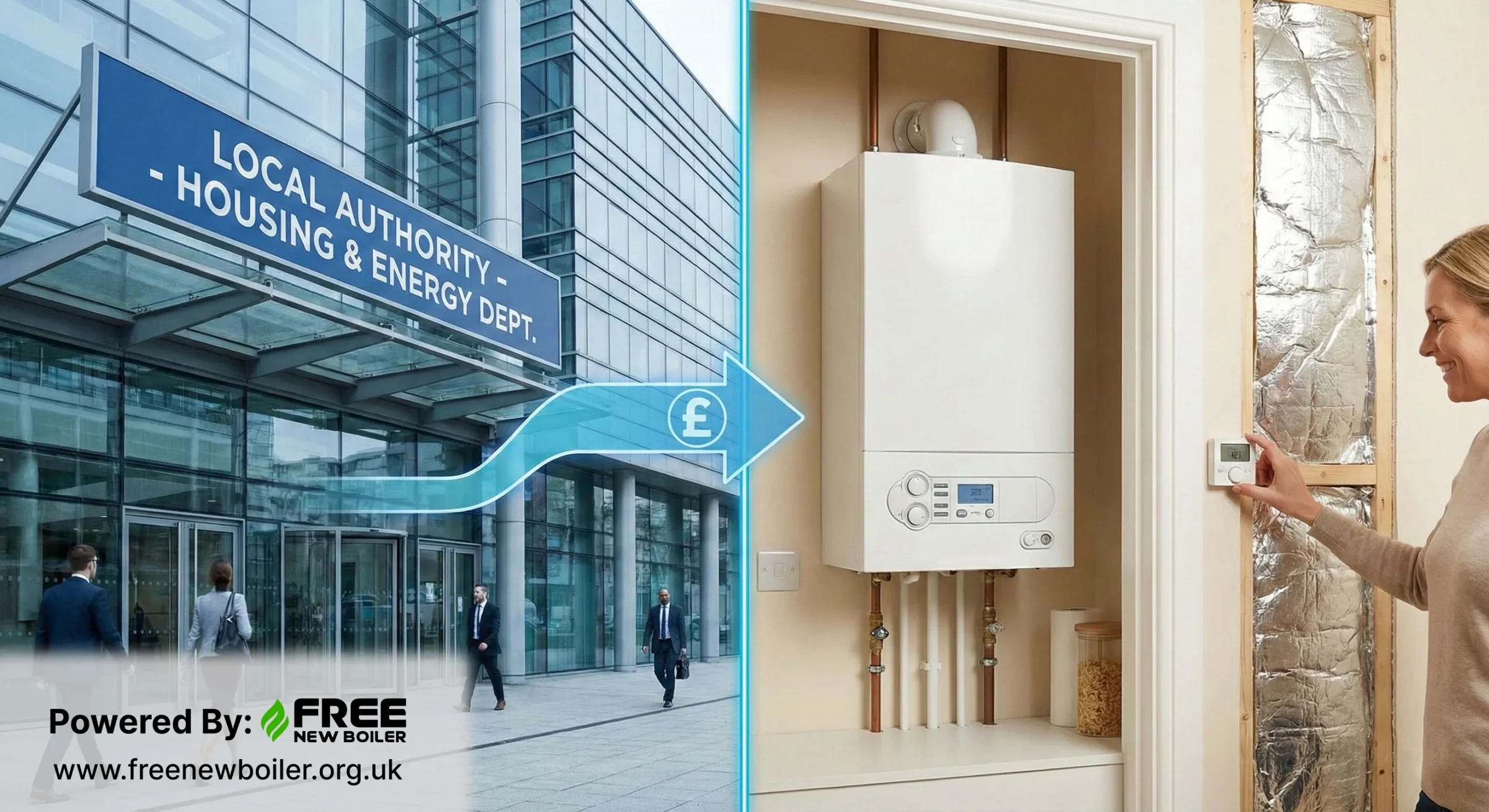Introduction
Many UK homeowners are now taking advantage of the ECO4 boiler grant, a government initiative designed to promote energy-efficient home upgrades. While this program can save them hundreds of pounds each year, many question whether tax implications are associated with receiving one of these grants. Understanding their taxable impact is particularly essential for pensioners and low-income people.
Are Boiler Gracnts Taxable in the UK?
One of the most frequently asked questions about boiler grants is whether they should be considered as taxable income by HMRC. But don’t fret: there’s good news:
Boiler grants offered through the ECO4 scheme are not considered taxable income.
If you qualify and receive one as part of this initiative, no extra taxes are due or need to be declared with your annual return.
Tax Reporting Requirements for Eco4 Grant Recipients
While boiler grant recipients do not owe taxes, you should consider their tax implications carefully. Here are the primary tax considerations related to their boiler grants:
- Grant funds do not need to be reported on your tax return.
- Landlords and businesses should consider improvements as capital expenses (consult their accountant).
- Private homeowners do not need to include this information when communicating with HMRC unless it impacts property resale or has tax implications for capital gains.
This guidance relates specifically to residential, non-commercial usage of the ECO4 boiler scheme.
Pensioners and Tax Status: Is There an Impact?
Many recipients of boiler grants are pensioners, raising questions about how these grants might impact benefits or tax-related taxes related to pensions. Here’s what you need to know:
- Receiving an ECO4 boiler grant does not affect your pension credit, state pension, tax code or savings code.
- Additionally, council tax support or housing benefits will not be affected in any way by receiving this grant.
Boiler grants for pensioners are tax-free and will not compromise any existing entitlements.
Eco4 Grants for Businesses or Rental Properties: With Restrictions
Although ECO4 is intended for residential homes, landlords who upgrade tenant properties may face various tax implications:
- They can claim the installation as a capital expense on their self-assessment
- If they receive only partial funding to cover the boiler cost, any uncovered expenditure may be tax deductible
In such instances, seeking guidance from an experienced tax adviser for proper handling is best.
Case Study: John’s Experience With Boiler Grant Tax
John, a 72-year-old retiree, received a fully funded ECO4 boiler grant in 2024 and was worried it may affect his pension tax code. Out of caution, he called HMRC to discuss their response – to which HMRC assured him it wouldn’t.
- His annual tax summary would not change, and no further action was required from him on his part.
- No tax relief grant would be considered income, and there would be no further impact on his financial position
This data demonstrates the non-taxable nature of boiler grants for most UK recipients.
How to Stay Compliant and Informed
Even though boiler grants are not subject to taxes, you should still take the following precautions.
- Make copies of any paperwork related to grants
- Research the source of each scheme Scam alert
- Consult a tax professional (especially landlords or business owners )
- Update home records in preparation for future appraisal or sales * Keep all paperwork related to grants
FAQ’s
Q1: Do I need to tell HMRC I received a boiler grant?
No. For residential use, ECO4 grants do not need to be reported.
Q2: Will this affect my pension or benefits?
No. Boiler grants for pensioners are non-taxable and won’t impact any benefit eligibility.
Q3: What if I’m partially funding the boiler?
Only the portion you pay may qualify as a tax-deductible home improvement (for landlords or self-employed individuals).



